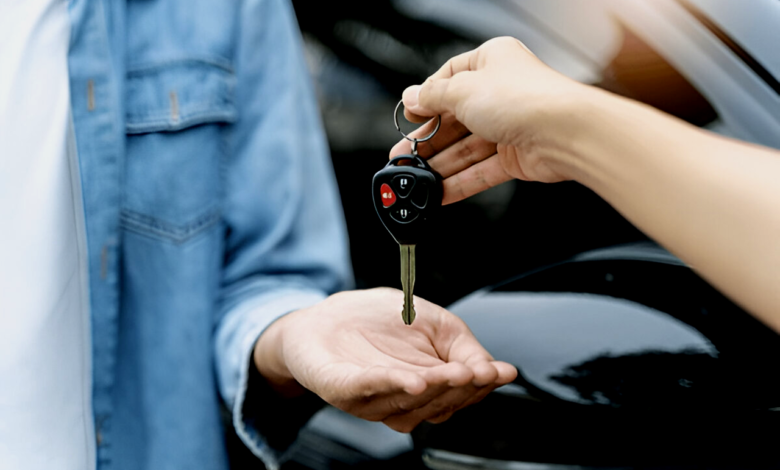How to Buy a Used Car Without Getting Ripped Off
Buying a used car without getting ripped off Learn expert tips to avoid scams negotiate smartly and find reliable vehicles with our complete guide.

Buying a used car can save you thousands compared to purchasing new, but it also comes with risks. Without proper research and caution, you could end up with a money pit hidden mechanical issue, odometer fraud, or even a stolen vehicle. The key to buying a used car without getting ripped off is knowing what to look for, where to buy, and how to negotiate a fair deal. This guide will walk you through every step, from setting a budget to finalizing the paperwork, so you can drive away with confidence and without regrets.
The used car market is full of great deals, but it’s also a breeding ground for scams and dishonest sellers. Many buyers rush into purchases without inspecting the vehicle, checking its history, or verifying the seller’s credibility only to discover costly problems later. To ensure you’re buying a used car without getting ripped off, you need a smart, methodical approach. Whether you’re buying from a dealership or a private seller, this guide will help you avoid common pitfalls and secure a reliable car at the right price. Let’s dive in.
How to Buy a Used Car Without Getting Ripped Off
Determine Your Budget
Before browsing listings, establish a realistic budget. Consider not just the purchase price but also insurance, taxes, registration, and potential repairs. A common rule is to spend no more than 20% of your monthly income on car-related expenses. If financing, check your credit score and get pre-approved for a loan to avoid high-interest dealer financing.
Research Reliable Used Car Models
Research Reliability Ratings and Ownership Costs
Before choosing a specific make and model, consult trusted automotive resources like Kelley Blue Book (KBB), Consumer Reports, and J.D. Power. These sources provide Detailed reliability ratings based on real-world owner experiences. Predicted maintenance and repair costs over time. Common mechanical issues reported for specific model years. Safety ratings from NHTSA and IIHS crash tests. Estimated fuel efficiency and insurance costs. Focus on vehicles that consistently rank high in these categories, as they’ll likely offer better long-term value with fewer unexpected repairs.
Avoid Problematic Models and High-Depreciation Vehicles
Some cars lose value quickly or have chronic mechanical issues that make them poor used car choice Research “cars to avoid” lists that highlight models with transmission failures, excessive oil consumption, or electrical problems. Be wary of luxury brands with expensive replacement parts. Check depreciation curves – some models lose 60% of value in 3 years while others hold value better. Look for vehicles with readily available, affordable replacement parts. Consider makes known for longevity (like certain Toyota and Honda models) that often reach 200,000+ miles with proper maintenance
Decide Where to Buy Private Seller vs. Dealership
Each option has pros and cons. Private sellers often offer lower prices, but you have fewer legal protections. Dealerships may provide certified pre-owned (CPO) vehicles with warranties but at a higher cost. Always verify the seller’s reputation by checking reviews or Better Business Bureau (BBB) ratings.
Check the Vehicle History Report
A vehicle history report (VHR) from Carfax or AutoCheck reveals critical details like accidents, title status, odometer readings, and service records. Avoid cars with salvage titles, flood damage, or inconsistent mileage. If the seller refuses to provide a VHR, consider it a red flag.
Inspect the Car Thoroughly
Never skip a physical inspection. Look for signs of rust, uneven paint (indicating repairs), and misaligned panels. Check the tires for uneven wear, which may suggest alignment issues. Test all lights, windows, and electronics. Open the hood and inspect for leaks, worn belts, and corrosion.
Take a Test Drive
Comprehensive Performance Evaluation
A proper test drive should thoroughly assess all critical systems Engine Listen for knocking, ticking or rough idling when starting cold. Transmission Test smooth shifting through all gears (including reverse). Brakes Check for pulsations, squealing, or pulling to one side. Steering Verify precise response without vibrations or wandering. Suspension Drive over bumps to listen for clunks and test shock absorption. Electronics Test all lights, signals, climate controls and infotainment.
Professional Inspection is Non-Negotiable
Even if the car drives well, always insist on A pre-purchase inspection by a trusted mechanic (costs 100−200 but saves thousands). Lifting the vehicle to inspect undercarriage for leaks, rust or damage. Computer diagnostics to check for hidden trouble codes. Compression test for engines with high mileage. Review of service records to verify proper maintenance history. This professional assessment often reveals problems even experienced buyers might miss, giving you negotiating power or helping you avoid a bad purchase altogether.
Negotiate the Price
Research the car’s fair market value on KBB or Edmunds, factoring in its condition, mileage, and local market prices. Politely negotiate by highlighting any issues (mechanical flaws, worn tires, etc.), but be prepared to walk away if the price isn’t fair or the seller seems untrustworthy.
Review the Paperwork Carefully
Ensure the title is clean (not salvage or rebuilt) and matches the seller’s ID. For dealership purchases, read the contract thoroughly to avoid hidden fees. In private sales, sign a bill of sale and complete a title transfer at the DMV.
Get the Car Insured Before Driving Off
Before purchasing a used car, secure insurance coverage as most states mandate it for registration. Compare multiple quotes and ask about discounts for safety features, anti-theft systems, or low annual mileage to get the best rates.
Finalize the Purchase and Register the Car
For secure payment, use a cashier’s check or escrow service (like PayPal Goods & Services) when buying privately never pay cash or wire transfers. Complete the title transfer at the DMV within your state’s required timeframe (typically 30 days) to avoid penalties, bringing the signed title, bill of sale, and current odometer reading.
Read More: How to Challenge a Parking Fine Legally in the UK
Conclusion
Successfully buying a used car without getting ripped off comes down to patience, research, and attention to detail. By following the steps outlined in this guide setting a realistic budget, thoroughly inspecting the vehicle, verifying its history, and negotiating wisely you can avoid common scams and make a smart purchase. Remember, if a deal seems too good to be true, it probably is. Trust your instincts, take your time, and never let a pushy seller rush you into a decision.
Ultimately, the extra effort you put into the buying process will pay off when you drive away in a reliable used car that fits both your needs and your budget. Whether you’re purchasing from a dealership or a private seller, staying informed and cautious is the best way to protect yourself. With the right approach, you can confidently navigate the used car market and buy a used car without getting ripped off, ensuring years of trouble-free driving ahead.
FAQs
What is the most important step when buying a used car?
Getting a vehicle history report and a professional inspection ensures you avoid hidden problems.
Should I buy from a dealer or a private seller?
Dealers offer more protections (like warranties), but private sellers may have lower prices. Choose based on your priorities.
How can I spot a scam when buying a used car?
Avoid sellers who refuse inspections, pressure you to buy quickly, or offer prices that seem too good to be true.
Is financing a used car a good idea?
If you get a low-interest rate, financing can help but always compare loan offers before committing.
What should I do if I buy a car with hidden issues?
If the seller misrepresented the car, you may have legal recourse. Otherwise, repair costs will be your responsibility.








4 Comments